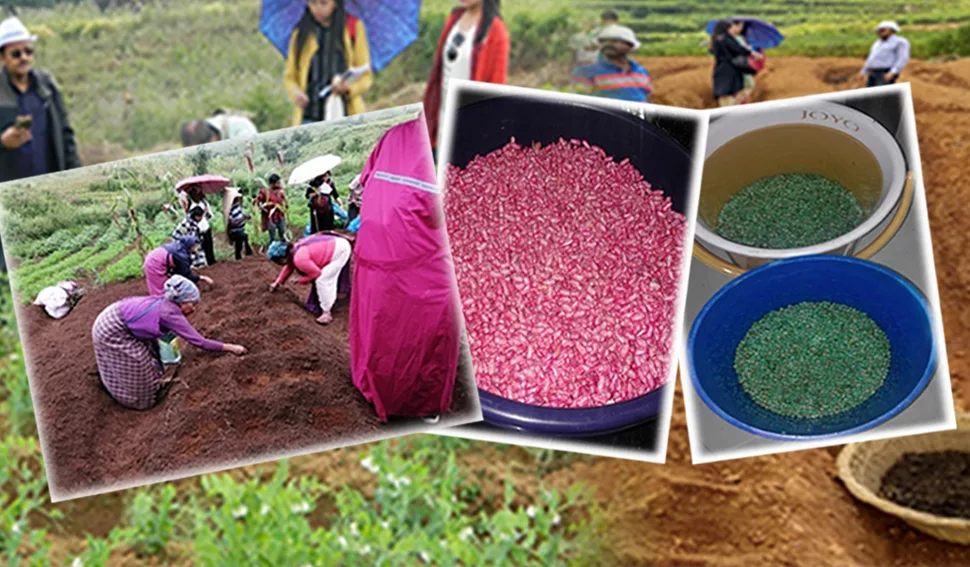A Success Story: Boosting pulse productivity with low-cost location specific intervention in mid-hill Meghalaya

French beans and peas are important crops grown by tribal farmers in Meghalaya, particularly in the highlands of the East Khasi Hills district and nearby areas. The region is known for its vegetable cultivation. However, the productivity of vegetables, including French beans and peas, is much lower in this region compared to the national average. Three villages in the East Khasi Hills, namely Mawmih, Mawlaiteng, and Lawmei, cultivate vegetables throughout the year but face the same low productivity issue.
Identifying the Problems:
To understand the root causes of the low productivity, a team of scientists from the ICAR Research Complex for NEH Region, Umiam, led by Dr. B.U. Choudhury and Dr. Hammylliende Talang, conducted a comprehensive study. They conducted surveys, engaged in participatory evaluations, and interacted with farmers through multiple field visits. The study revealed several factors contributing to the low productivity, including inadequate cropping practices, poor-quality seeds, water stress during dry winters, lack of irrigation resources in uplands, and insufficient nutrient replenishment through manure. Based on these findings, a low-cost management intervention was developed through collaboration with the local farmers.
Implementing the Intervention:
Under the tribal sub-plan, around 20 farmers from each of the three selected villages (Mawmih, Mawlaiteng, and Lawmei) were chosen to participate in the intervention program. They were provided with essential resources such as organic manure, agricultural lime, high-quality seeds, bio-pesticides, and specialized farm tools suitable for the hilly terrain. Additionally, the farmers received residential training on improved production techniques, which included field demonstrations and visits to experimental farms of ICAR Research Complex for NEH Region, Umiam. This equipped them with the necessary knowledge and skills to implement effective farming practices.
Intervention Techniques:
In the highlands, farmers traditionally used raised beds called “buns” for cultivation. The intervention introduced a zigzag pattern to slow down soil erosion and promote rainwater infiltration, resulting in better soil retention. Agricultural lime was applied in the furrows between the rows, and organic manure was added to the seeding pits in the raised beds. The seeds of peas (var. Arkel) and French beans (var. Anupam) were treated with lime overnight, accurately labeled, and planted at appropriate spacing and depth in the treated pits. Both traditional and improved practices were compared in terms of crop yield and financial outcomes.

Results and Benefits:
The intervention demonstrated significant improvements in productivity and net income from the cultivation of peas and French beans. The table below highlights the results obtained with and without the intervention:


Leave a Reply